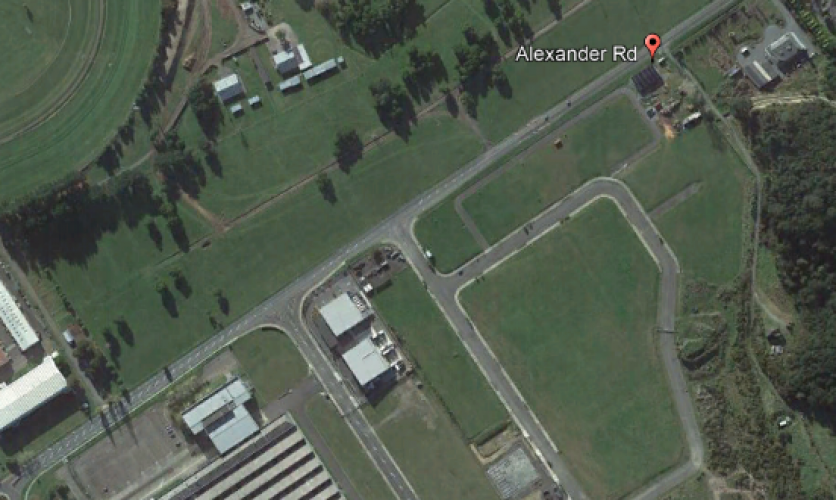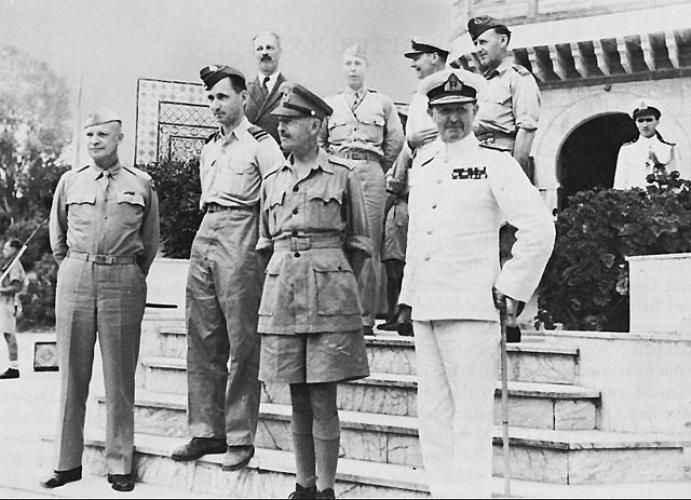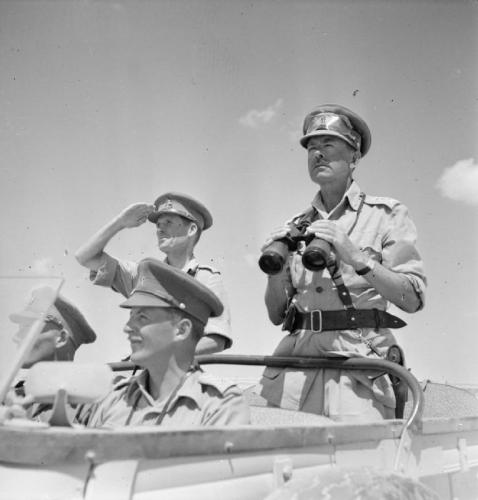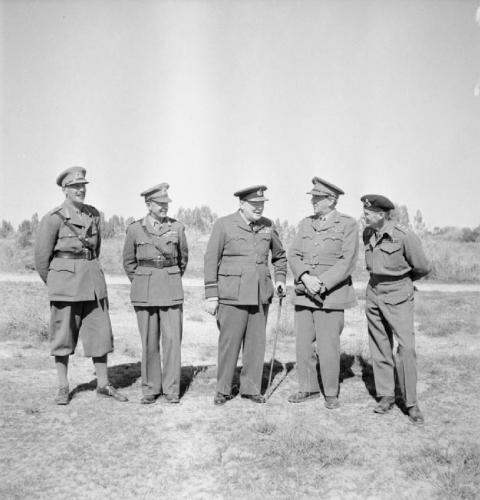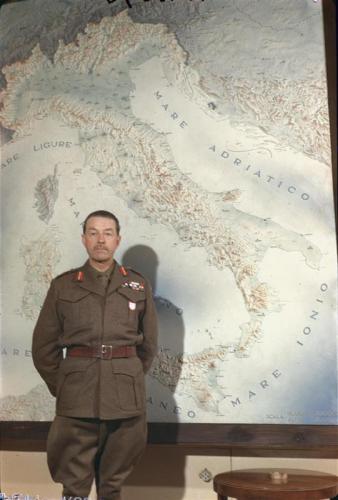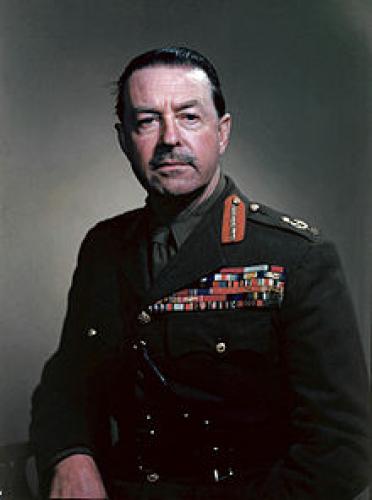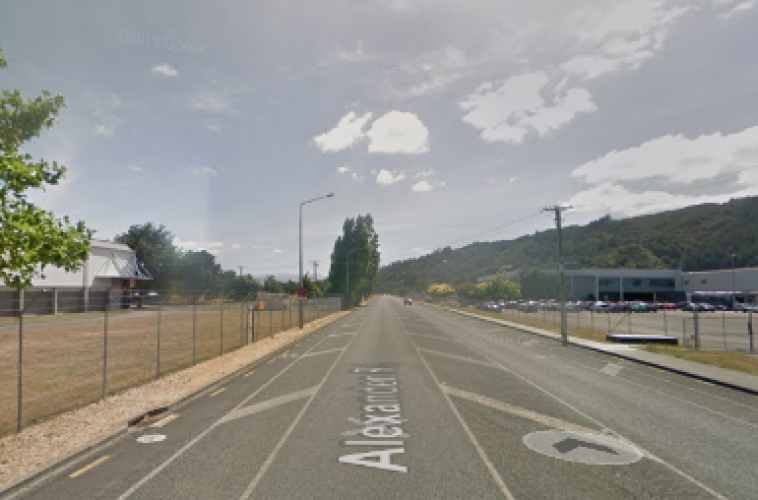196 Alexander Road Trentham, street scene 2018
Reason for the name
Many streets around Trentham Camp are named in honour of military personnel, battles and campaigns from New Zealand’s military history. Alexander Road is named in honour of Field Marshal Harold Rupert Leofric George Alexander, 1st Earl Alexander of Tunis, KG, GCB, OM, GCMG, CSI, DSO, MC, CD, PC (10 December 1891 – 16 June 1969). He was a senior British Army officer who served with distinction in both the First World War and the Second World War and, afterwards, as Governor General of Canada, the 17th since Canadian Confederation.
Alexander was born in London, England, to aristocratic parents and was educated at Harrow before moving on to the Royal Military College, Sandhurst, for training as an army officer of the Irish Guards. He rose to prominence through his service in the First World War, receiving numerous honours and decorations, and continued his military career through various British campaigns across Europe and Asia. In World War II, Alexander oversaw the final stages of the Allied evacuation from Dunkirk and subsequently held high-ranking field commands in Burma, North Africa and Italy, including serving as Commander-in-Chief Middle East and commanding the 18th Army Group in Tunisia. He then commanded the 15th Army Group for the capture of Sicily and again in Italy before receiving his field marshal's baton and being made Supreme Allied Commander Mediterranean.
In 1946 he was appointed as governor general by King George VI, on the recommendation of Prime Minister of Canada William Lyon Mackenzie King, to replace the Earl of Athlone as viceroy, and he occupied the post until succeeded by Vincent Massey in 1952. Alexander proved to be enthusiastic about the Canadian wilderness and was a popular governor general with Canadians. He was the last non-Canadian-born governor general before the appointment of Adrienne Clarkson in 1999, as well as the last governor general to be a peer.
After the end of his vice regal tenure, Alexander was sworn into the Queen's Privy Council for Canada and thereafter, in order to serve as the British Minister of Defence in the Cabinet of Winston Churchill, into the Imperial Privy Council. Alexander retired in 1954 and died in 1969.
Author: The Poppy Places Trust
Military career
In September 1911, Alexander entered the Royal Military College, Sandhurst and was commissioned as a second lieutenant in the British Army's Irish Guards. He was promoted to lieutenant in December 1912.
First World War
Alexander spent most of the First World War on the Western Front. As a 22-year-old platoon commander in the 1st Battalion, Irish Guards, he served with the British Expeditionary Force (BEF) in 1914. He took part in the retreat from Mons and was wounded at First Ypres and invalided home. He was promoted to temporary captain on 15 November 1914 and permanent captain in the newly raised 2nd Battalion on 7 February the following year.
Alexander returned to the Western Front in August 1915, fought at the Battle of Loos and was, for ten days in October 1915, an acting major and acting Commanding Officer (CO) of the 1st Battalion, Irish Guards as a "Battle Casualty Replacement". He then returned to the 2nd Battalion as a company officer and, in January 1916, received the Military Cross for his bravery at Loos. For service in the Battle of the Somme on 15 September 1916, he was, in October, appointed to the Distinguished Service Order (DSO), the citation for which read: "For conspicuous gallantry in action. He was the life and soul of the attack, and throughout the day led forward not only his own men but men of all regiments. He held the trenches gained in spite of heavy machine gun fire." In the same month, Alexander was further honoured with induction into the French Légion d'honneur.
On 10 December 1916, his twenty-fifth birthday, Alexander became second-in-command (2-i-c) of the 1st Battalion, Irish Guards as an acting major. By May, he was briefly acting CO of the 1st Battalion, as an acting lieutenant colonel, while still only a substantive captain. He became a permanent major on 1 August 1917 and was again promoted acting lieutenant colonel, this time confirmed as CO of the 2nd Battalion, Irish Guards, on 15 October. Alexander commanded his battalion at Third Ypres, where he was slightly wounded, then at Bourlon Wood (part of the battle of Cambrai), where his battalion suffered 320 casualties out of 400 men. Alexander, between 23 and 30 March 1918, had to assume command of the 4th Guards Brigade, during the British retreat from the German Army's Spring Offensive. He once again commanded the 2nd Battalion, Irish Guards at Hazebrouck in April 1918, where it took such severe casualties that it saw no further action. Still an acting lieutenant colonel, he then commanded a corps infantry school in October 1918, a month before the war ended on 11 November 1918.
Rudyard Kipling, who wrote a history of the Irish Guards, in which his own son, Jack Kipling, fought and was killed in action, noted that, "it is undeniable that Colonel Alexander had the gift of handling the men on the lines to which they most readily responded... His subordinates loved him, even when he fell upon them blisteringly for their shortcomings; and his men were all his own."
Second World War
Following the outbreak of the Second World War, in September 1939, Alexander brought the 1st Division to France, where it became part of the British Expeditionary Force (BEF) and served there for the next eight months. In May 1940, when the German Army invaded France, he successfully led the division's withdrawal to Dunkirk, where it was evacuated to England, along with the rest of the BEF. Shortly after Major General Bernard Montgomery had been appointed to command II Corps (and before that the 3rd Division), Alexander was, while still on the beachhead, placed in command of I Corps, and left the beach on the last destroyer on 3 June after ensuring that all British troops had been evacuated. In recognition of his services in the field from March to June 1940, Alexander was again mentioned in despatches.
After Dunkirk, Alexander returned to the United Kingdom and continued to command I Corps, now guarding the coasts of Yorkshire and Lincolnshire. He was promoted acting lieutenant-general in July 1940, and appointed the General Officer Commanding-in-Chief (GOC-in-C) of Southern Command, which was responsible for the defence of south-west England. His rank of lieutenant-general was made permanent in December 1940.
On 1 January 1942 he was knighted and appointed a Knight Commander of the Order of the Bath, and in February, after the Japanese invasion of Burma, was sent to India to become GOC-in-C of British Forces in Burma as a full general. Alexander was unable to fulfil his orders to hold Rangoon, which was abandoned on 6–7 March. He took personal charge of some small local engagements, and was encircled by the Japanese troops in the Battle of Yenangyaung. Rescued by Chinese troops commanded by General Sun Li-jen, Alexander was able to escape. Following that, Alexander increasingly left much of the tactical conduct of the campaign to his corps commander, Lieutenant-General William Slim, while he himself handled the more political aspects of relations with Joseph Stilwell, the nominal commander of the Chinese forces. Alexander was promoted to Commander-in-Chief (C-in-C) of Allied Land Forces in Burma, March 1942, and ordered Slim to abandon Mandalay and retreat to India.
By July 1942, the British and Indian forces in Burma had completed their fighting retreat into India, and Alexander, having yet again been mentioned in despatches for his Burma service, was recalled to the United Kingdom. He was at first selected to command the British First Army, which was to take part in Operation Torch, the Anglo-American invasion of French North Africa. However, following a visit in early August to Egypt by the British Prime Minister, Winston Churchill, and the Chief of the Imperial General Staff (CIGS), General Sir Alan Brooke, Alexander flew to Cairo on 8 August to replace General Claude Auchinleck as C-in-C of Middle East Command, the post responsible for the overall conduct of the campaign in the desert of North Africa. At the same time, Lieutenant-General Montgomery replaced Auchinleck as GOC of the British Eighth Army. Alexander presided over Montgomery's victory at the Second Battle of El Alamein and the advance of the Eighth Army to Tripoli, for which Alexander was elevated to a Knight Grand Cross of the Order of the Bath, and, after the Anglo-American forces of the First Army (under Lieutenant-General Kenneth Anderson) from Operation Torch and the Eighth Army converged in Tunisia in February 1943, they were brought under the unified command of a newly formed 18th Army Group headquarters, commanded by Alexander and reporting to General Dwight D. Eisenhower, the Supreme Allied Commander in the Mediterranean Theatre of Operations (MTO) at Allied Forces Headquarters (AFHQ). General Omar Bradley, an American general who fought in the Tunisian Campaign, then commanding the U.S. II Corps, credited Alexander's patience and experience with helping an inexperienced United States "field command mature and eventually come of age."
The Axis forces in Tunisia surrendered by May 1943, and Alexander's command became the 15th Army Group, which was, under General Eisenhower, responsible for mounting in July the Allied invasion of Sicily, again seeing Alexander controlling two field armies: General Montgomery's Eighth Army and Lieutenant General George S. Patton's U.S. Seventh Army. After Sicily, and in preparation for the Allied invasion of Italy, the Seventh Army headquarters were replaced by those of the U.S. Fifth Army, led by Lieutenant General Mark W. Clark.
When Eisenhower was appointed Supreme Allied Commander for the planned Normandy landings he suggested that Alexander become ground forces commander, as he was popular with both British and American officers. Bradley, who after Normandy commanded the U.S. 12th Army Group, remarked that he would have preferred to work with Alexander, rather than Montgomery, as he regarded the former as "a restrained, self-effacive and punctilious soldier". Of the problems that subsequently surfaced with Montgomery's command of the Anglo-Canadian 21st Army Group, Bradley suspected they would not have occurred with Alexander in command. Brooke, however, applied pressure to keep Alexander in Italy, considering him unfit for the assignment in France. Thus, Alexander remained in command of the 15th Army Group, and, with the support of numerous Allied commanders, controversially authorised the bombing of the historic abbey at Monte Cassino, which resulted in little advance on the German Winter Line defences. It was not until the fourth attempt that the Winter Line was breached by the Allies, and Alexander's forces moved on to capture Rome in June 1944, thereby achieving one of the strategic goals of the Italian Campaign. However, the U.S. VI Corps in the Anzio beachhead, under Clark's orders, failed to follow their original break-out plan that would have trapped the German 10th Army escaping northwards in the aftermath of the Battle of Monte Cassino, instead favouring an early and highly publicised entry into Rome two days before the Allied landings in Normandy.
Alexander remained in command of the 15th Army Group, as well as its successor, the Allied Armies in Italy, for most of the Italian Campaign, until December 1944, when he relinquished his command to Clark and took over as the Supreme Commander of the Allied Forces Headquarters, responsible for all military operations in the Mediterranean Theatre. Alexander was concurrently promoted to the rank of field marshal, though this was backdated to the fall of Rome on 4 June 1944, so that Alexander would once again be senior to Montgomery, who had himself been made a field marshal on 1 September 1944, after the end of the Battle of Normandy. Alexander then received the German surrender in Italy, on 29 April 1945. Further, as a reward for his leadership in North Africa and Italy, Alexander, along with a number of other prominent British Second World War military leaders, was elevated to the peerage on 1 March 1946 by King George VI; he was created Viscount Alexander of Tunis and Errigal in the County of Donegal.
Brooke felt that Alexander needed an able chief of staff "to think for him", while Montgomery (Alexander's subordinate in Africa and Italy) claimed to think of Alexander as "incompetent" and success was attained in Tunisia only because Montgomery lent Lieutenant-General Brian Horrocks, the commander of IX Corps, to organise the coup de grace. However, Harold Macmillan was impressed by Alexander's calm and style, conducting dinners in his mess like those at an Oxbridge high table, discussing architecture and the campaigns of Belisarius, rather than the current war. Macmillan thought Alexander's urbane manner and willingness to discuss and compromise were a sensible way to maintain inter-Allied cooperation, but Alexander's reserve was such that some thought him empty of strategic ideas and unable to make decisions. Graham and Bidwell, however, wrote that Alexander's impenetrable reserve made it hard to judge whether or not he had any military ideas, but that he was "unable or unwilling" to assert his will over his army commanders, and that Mark Clark, who often referred to him scornfully as a "peanut" and a "feather duster", exploited this weakness.
The Earl served as the British defence minister until 1954, when he retired from politics and, in 1959, the Queen appointed Alexander to the Order of Merit. From 1960 to 1965, he served as Constable of the Tower of London. Alexander was an active freemason.
Canada remained a favourite second home for the Alexanders and they returned frequently to visit family and friends until Alexander died on 16 June 1969 of a perforated aorta. His funeral was held on 24 June 1969, at St. George's Chapel, in Windsor Castle, and his remains are buried in the churchyard of Ridge, near Tyttenhanger, his family's Hertfordshire home.


